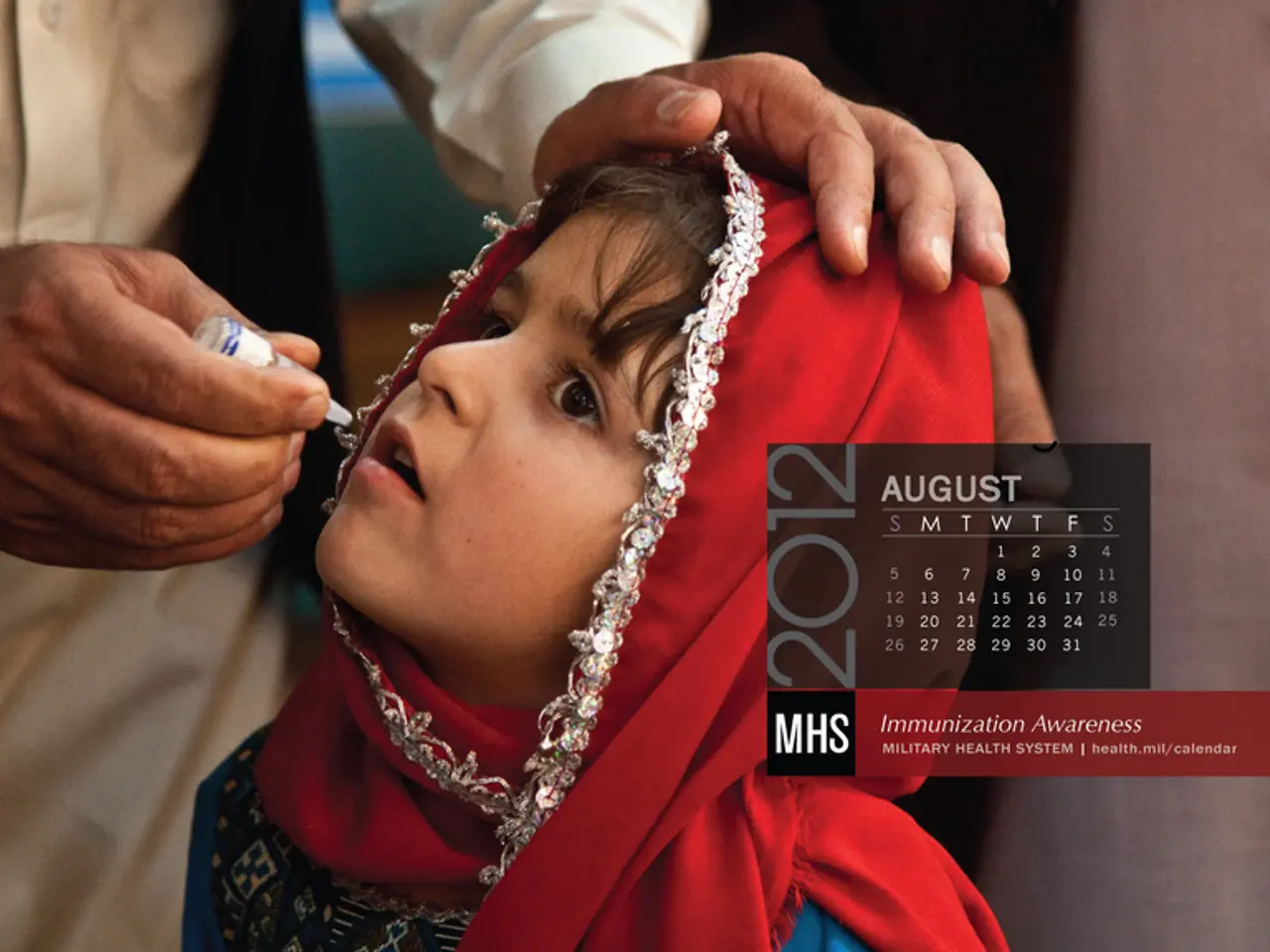Hepatitis B vaccine recommendation remains undecided among CDC advisers, after altering advice on MMRV vaccination
In a recent meeting, the Advisory Committee on Immunization Practices (ACIP) discussed potential changes to the vaccine schedules for hepatitis B and the MMRV vaccine.
During the meeting on Thursday, Martin Kulldorff, Chairman of the ACIP, spoke about the proposed changes. The new recommendations for hepatitis B would guide doctors to screen all mothers and offer the vaccine only to those who do not test negative in an initial screening. This shift away from giving the vaccine to all babies at birth, regardless of the mother’s hepatitis B status, could potentially reverse decades of progress in lowering rates of illness in the U.S.
However, the ACIP deferred a decision on the proposed change to the hepatitis B vaccine. Dr. Robert Malone, a close Kennedy associate, suggested postponing a vote due to ambiguity and ongoing discussions about safety, effectiveness, and timing.
In a different part of the meeting, the ACIP voted in favour of changing the childhood vaccine schedule for the MMRV vaccine. The MMRV vaccine is a combination shot for measles, mumps, rubella, and chickenpox. Removing the MMRV shots from the vaccine schedule for children under age 4 could lead to fewer kids being vaccinated.
Tension between the committee and the medical establishment surfaced during the discussion over changes to the MMRV vaccine guidance. The American Academy of Pediatrics (AAP) had decided to boycott the meetings, arguing that federal vaccine policymaking is no longer a 'credible process.'
Several liaisons from major medical groups criticized the committee’s process. Dr. Evelyn Griffin, an OB-GYN and ACIP member, expressed concern about vaccinating babies on day one to lower the prevalence of hepatitis B in a high-risk population. On the other hand, Dr. Adam Langer, a CDC scientist, highlighted potential harms to infants from waiting to administer the hepatitis B vaccine.
The ACIP voted to allow the MMRV vaccine for children under 4 to continue to be paid for by the Vaccines for Children program. However, later in the meeting, they reversed this decision. CDC scientists explained that gaps in prenatal screening could leave many babies vulnerable to catching a debilitating, sometimes fatal illness. Meissner pointed out that efforts to identify high-risk groups had failed in the past, and changing the recommendations could increase the risk of harm.
The search results do not provide information about which person prevented the vote on Friday to remove the MMRV vaccine for children under 4 years from the Vaccines for Children program. The vast majority of children in the U.S. receive separate shots for MMR and chickenpox, but parents have the option to give their children a single shot to cover all four diseases.
The ACIP's votes still require final approval from the acting CDC director Jim O’Neill. The proposed changes to the hepatitis B vaccine schedule and the MMRV vaccine guidance continue to be topics of debate and controversy among healthcare professionals and the public.
Read also:
- Trump's SNAP reductions and New York City Council's grocery delivery legislation: Problems for city residents highlighted
- Reducing dental expenses for elderlies in Sweden: Over 50% cut in charges for pensioners by the government
- Forty-year-old diet: A list of meal choices to savor
- Exiled Life's Conundrum: A Blend of Liberation, Disillusionment, and Distress






